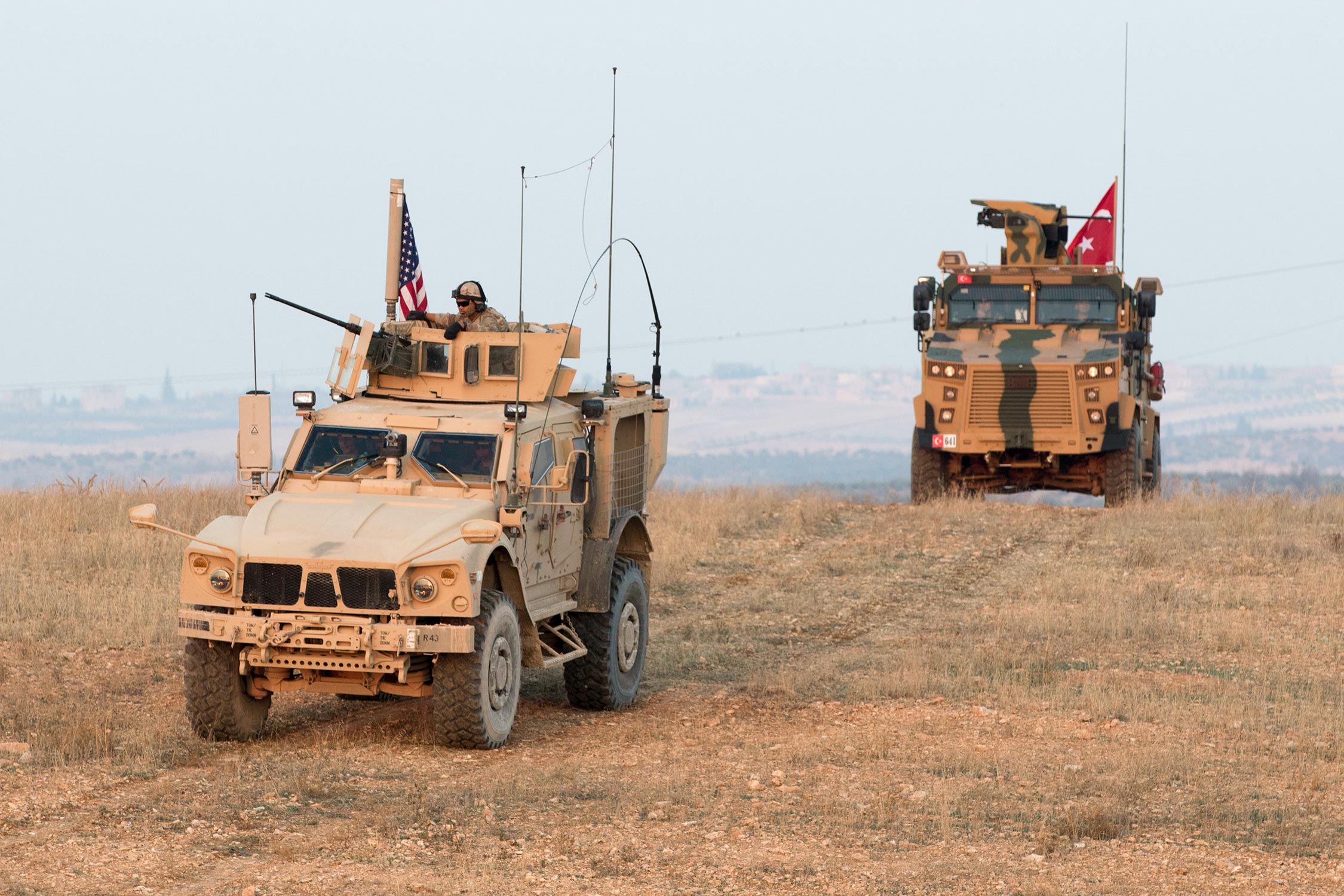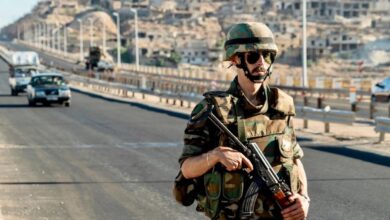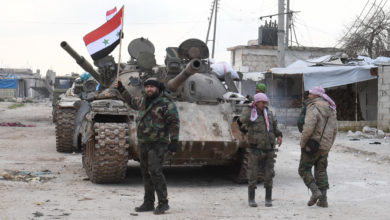Turkey rejects latest proposals on Syria safe-zone, accuses US of stalling
The Turkish government rejected the latest U.S. proposals to establish a safe zone in northeast Syria, Foreign Minister Mevlut Cavusoglu said on Wednesday, adding that he suspects the Americans of stalling.
“New U.S. proposals on a Syria safe zone are not at all satisfactory for Turkey,” Cavusoglu said during a press conference on Wednesday, Turkey’s state-run Anadolu news agency reported.
Cavusoglu said the two sides failed during meetings in Ankara this week to agree on who will administer the border zone and whether the People’s Protection Units (YPG) militia will fully leave the area.
The U.S. and Turkey agreed to establish a safe zone along the Turkish border in northeast Syria after President Donald Trump announced the withdrawal of American troops from the country in December.
How such a buffer zone would be created by Turkey is unclear. A 20-mile zone would encompass the majority-Kurdish towns including Qamishli and Kobane as well as strategic cities controlled by groups affiliated to the Syrian Democratic Forces, such as Tal Abyad and Manbij. It would also include Ayn Issa, the new administrative center for north and east Syria.
The Turkish government has long been threatening to launch a military incursion to clear the border area of the predominantly Kurdish YPG, which forms the core of the U.S.-led Coalition-backed SDF in ground operations against Islamic State.
Washington’s support for the group has infuriated the Turkish government, which views the YPG as a branch of the Kurdistan Workers’ Party, or PKK, designated a terrorist organization by Turkey and its Western allies.
U.S. Special Envoy for Syria James Jeffrey met with senior Turkish officials this week, including Cavusoglu on Monday and Ibrahim Kalin, advisor to President Recep Tayyip Erdogan, on Wednesday.

Turkey insists on managing the proposed safe zone with its own forces. The SDF rejects that proposal in favor of an internationally-supervised buffer zone, and says its forces will resist any Turkish incursion regardless of U.S. assistance.
Turkey has launched two previous incursions into northern Syria, taking control of much of Idlib province with Operation Euphrates Shield in 2016 and the Kurdish enclave of Efrin with Operation Olive Branch in January 2018.
The Efrin incursion led to mass civilian displacement and alleged war crimes by Turkey-backed rebels, according to the United Nations.
Jeffrey told Congress in May that Coalition member nations have been “stepping up” to help maintain security in northeast Syria but said last week that the U.S. has not yet received “formal commitments.”
A European diplomatic source told The Defense Post in June that France and the United Kingdom have committed an incremental troop increase to continue the counter-ISIS mission in Syria, but they are not intended to serve as the proposed border force.
“We got the impression that they want to enter a stalling process here as in Manbij,” Reuters quoted Cavusoglu as saying of the U.S. delegation on Wednesday.
Turkey has long accused the Americans of stalling on a June 2018 agreement to facilitate the removal of YPG cadre from the northern Syrian city of Manbij.
In a statement on Wednesday, however, the U.S. State Department called the discussions in Ankara “forthright, positive, and productive.”
“Both sides committed to accelerated and concrete progress on the Manbij Roadmap, and discussed detailed proposals to enhance Turkey’s security along the Turkish border in northeast Syria,” the statement read, but made no mention of any agreement on the safe zone.
New U.S. Central Command commander General Kenneth McKenzie and deputy Syria envoy William Roebuck also met with top SDF commander General Mazlum Abdi in northeast Syria on Monday.
During those discussions, “It was once again reiterated that mentioned issues including security situation of NE Syria can only be settled through dialogue between parties,” Mustafa Bali, head of the SDF press office, tweeted on Monday.
Cavusoglu had on Monday reiterated his government’s warning that it would launch a military incursion into northeast Syria if agreement is not reached soon.
State Department officials privately discussed the possibility of facilitating peace talks between the Turkish government and the PKK in hopes of resolving the border crisis back in December.
In May, the Turkish government allowed imprisoned PKK leader Abdullah Ocalan to speak with his lawyers for the first time since 2011.
Ocalan released a letter calling on the SDF to avoid a conflict and to heed Turkey’s security concerns, leading to hopes that a future peace agreement may be possible.
In January, senior officials from the Autonomous Administration of North and East Syria told The Defense Post that they are willing to negotiate with Turkey directly to resolve the crisis.
Turkey and the SDF engaged in back-channel communications earlier this year, Mazlum said in May, adding that his side would be ready to engage in direct negotiations if Turkish forces withdraw from Efrin.
Jeffrey’s team has played a delicate balancing act between the two sides in recent months, as Turkey went ahead with its purchase of Russia’s S-400 air defense missile system, ignoring U.S. warnings of expulsion from the F-35 program and possible sanctions.
Turkish media reported a significant buildup of Turkish military forces along the Syrian border in the days following the missile system’s initial delivery.
An undisclosed number of U.S. troops still remain in northern Syria. American officials have taken Turkey’s threats seriously in past internal discussions.
American patrols were reported in the border area near Serê Kaniyê (Ras al-Ayn) earlier this week after the Turkish military said it retaliated against rocket fire from the Syrian side that landed in the Turkish town of Ceylanpinar.
Both the SDF and YPG also said a shell was fired from Syrian territory but denied responsibility and said an investigation was underway.
The YPG called the incident a “provocative act” and a “clear attempt to disrupt stability in NE Syria.”











